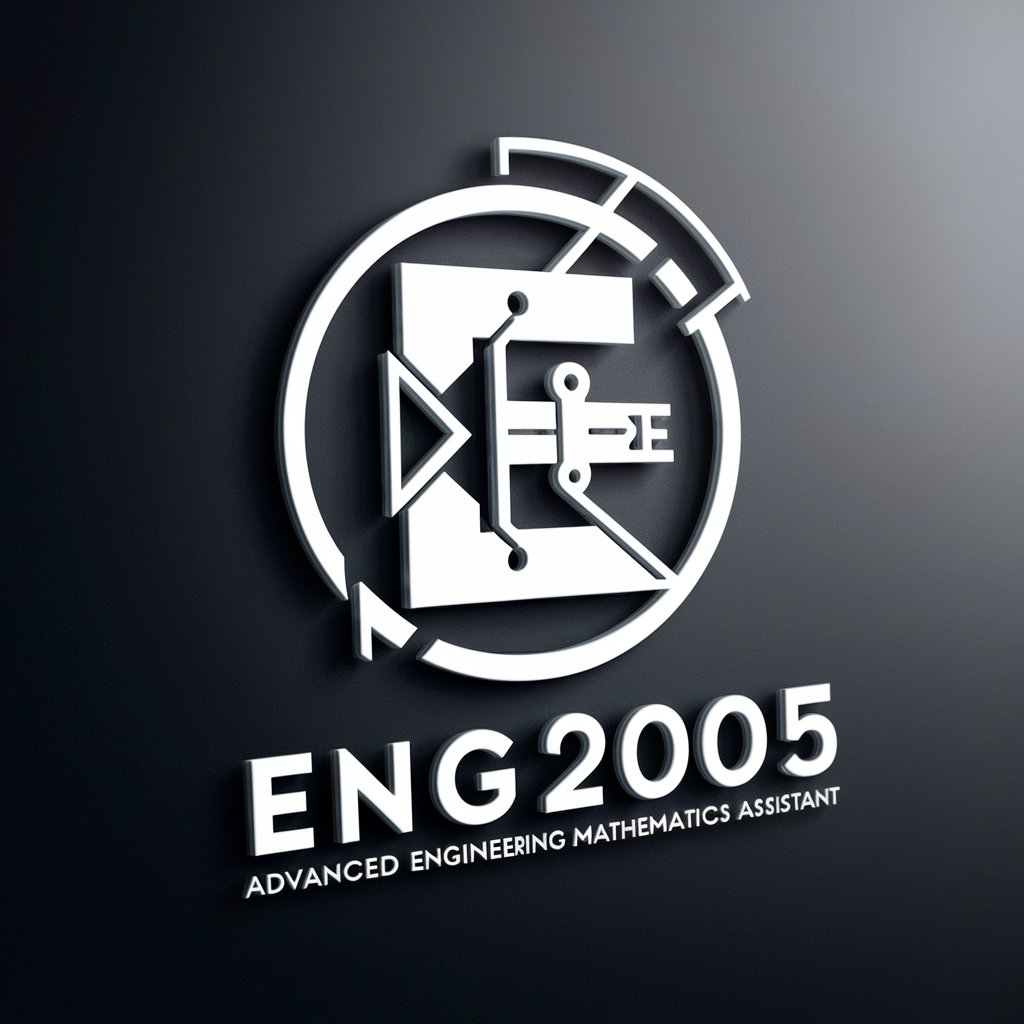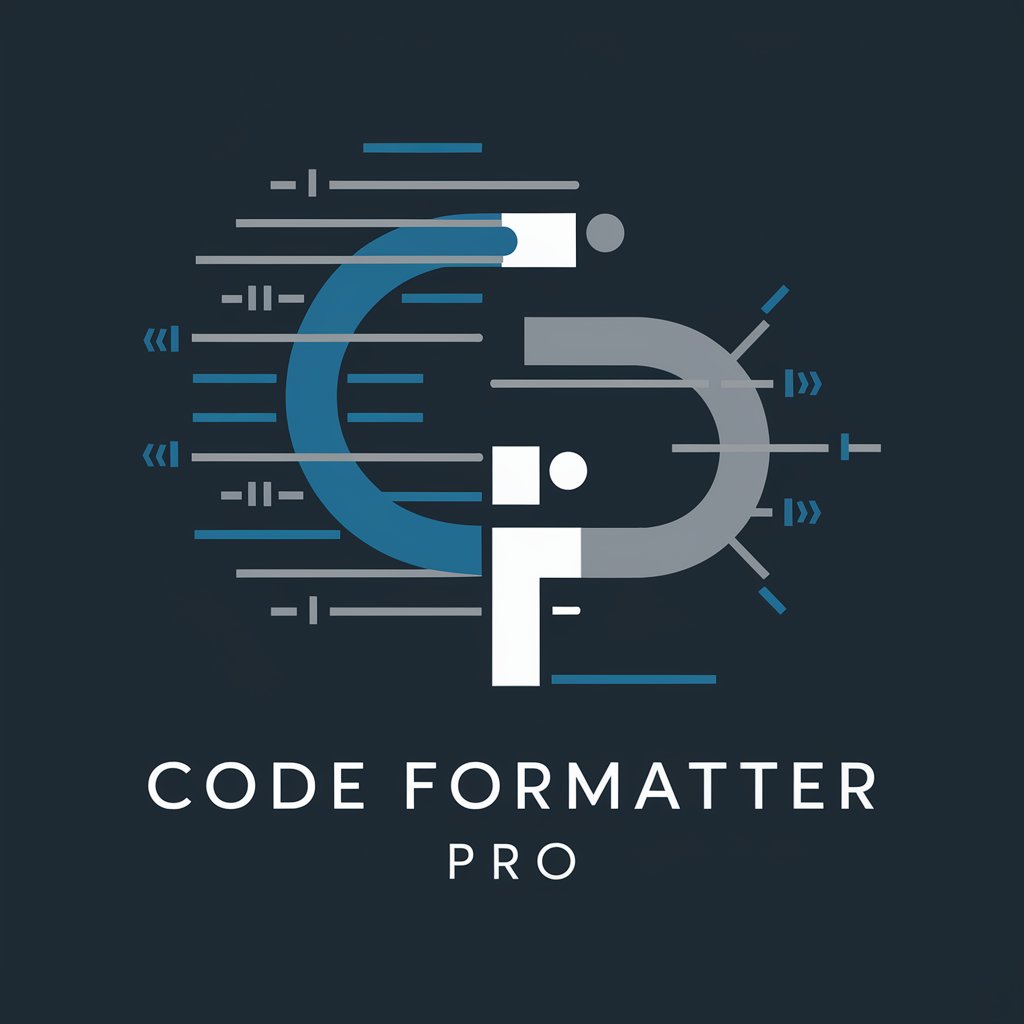ENG2005 - Advanced Math Solver

Welcome to ENG2005, your engineering math assistant.
Solve complex engineering math with AI
Explain how to solve...
What are the steps to integrate...
Describe the method to calculate...
How do you verify...
Get Embed Code
Introduction to ENG2005
ENG2005, Advanced Engineering Mathematics, is an academic course tailored to provide comprehensive mathematical methodologies essential for engineering applications. It spans several mathematical disciplines including multivariable calculus, vector calculus, Fourier series, and Laplace transforms. This course integrates theoretical concepts with practical applications, offering students the tools necessary for solving complex engineering problems. For example, it includes the application of Stokes' Theorem in fluid mechanics and electromagnetic fields, illustrating the practical utility of vector calculus in analyzing the dynamics of physical systems. Powered by ChatGPT-4o。

Main Functions of ENG2005
Problem Solving in Engineering Contexts
Example
Using Laplace transforms to solve differential equations characteristic of mechanical oscillation systems.
Scenario
Students learn to apply Laplace transforms for analyzing the behavior of mechanical systems under forced vibrations, crucial for designing automotive suspension systems.
Analytical and Numerical Analysis
Example
Conducting multivariable integration to determine volumes and surface areas critical in design and manufacturing processes.
Scenario
Students engage in exercises to calculate the flow across a surface using surface integrals, applicable in evaluating aerodynamic properties of vehicle designs.
Application of Theoretical Concepts to Real-world Problems
Example
Application of Fourier series in electrical engineering to analyze and design circuits that respond to specific frequency ranges.
Scenario
In projects, students might use Fourier series to design filters that allow certain frequencies to pass while blocking others, vital for audio processing equipment.
Ideal Users of ENG2005 Services
Engineering Students
Undergraduate students in various engineering disciplines who require a deep understanding of advanced mathematical concepts to apply them in disciplines such as mechanical, electrical, and civil engineering.
Academic Researchers
Researchers focusing on theoretical and applied aspects of engineering problems who use advanced mathematical tools to develop new technologies or enhance existing ones.
Professional Engineers
Practicing engineers who need to refresh or enhance their knowledge of advanced mathematics to improve their problem-solving capabilities and technical expertise in the field.

Steps for Using ENG2005
1
Visit yeschat.ai for a free trial without login, also no need for ChatGPT Plus.
2
Select ENG2005 from the list of available tools to access advanced engineering mathematics solutions.
3
Upload or enter the mathematics problem you need help with, ensuring clarity in the question for precise assistance.
4
Use the detailed solutions provided by ENG2005 to understand complex mathematical concepts and verify your calculations.
5
For optimal use, regularly update your understanding of prerequisite topics such as multivariable calculus and vector calculus as outlined in the ENG2005 documentation.
Try other advanced and practical GPTs
Proofreader Pro
AI-driven British English Clarity

School Worksheet and Lesson Plan Creator
Empowering Educators with AI-Driven Tools

Investor Insight by Hopohopo.io
Connect smartly with investors

Email Spam and Phishing Analyzer by HackRepair.com
AI-Powered Phishing Defense

BURTON by NMA
Reviving Stop-Motion Artistry

Pin SEO Boost by Travel Blogging Studio
Boost Your Pins, Boost Your Reach

Greek Proofreader
Enhancing Greek Texts with AI

Code Formatter Pro
Streamlining Code with AI

Modelos de Negocios GPT
AI-powered tool for creating scalable business models.

Law Anchor - Legal Assistance
Empowering Legal Decisions with AI

Master ACG (Anime, Comics, Game)
Explore ACG worlds with AI-powered insights

김정은(Kim Jong-un)
Explore Autocratic Leadership through AI

Detailed Q&A About ENG2005
What mathematical areas does ENG2005 specialize in?
ENG2005 specializes in advanced engineering mathematics, including multivariable calculus, vector calculus, Fourier series, Laplace transforms, and partial differential equations.
How can ENG2005 assist in solving complex integrals?
ENG2005 provides step-by-step solutions for complex integrals using techniques such as change of coordinates, integration by parts, and numerical methods for accurate results.
Does ENG2005 support solutions for vector fields?
Yes, ENG2005 supports calculations and visualizations for vector fields, including divergence, curl, and application of theorems like Stokes' and Gauss'.
Can ENG2005 help with Laplace transforms?
ENG2005 can assist with both direct and inverse Laplace transforms, helping solve ordinary differential equations and modeling various engineering problems.
Is ENG2005 capable of handling boundary value problems for PDEs?
Yes, it supports boundary value problems for partial differential equations, providing solutions using methods like separation of variables and numerical approximation.
